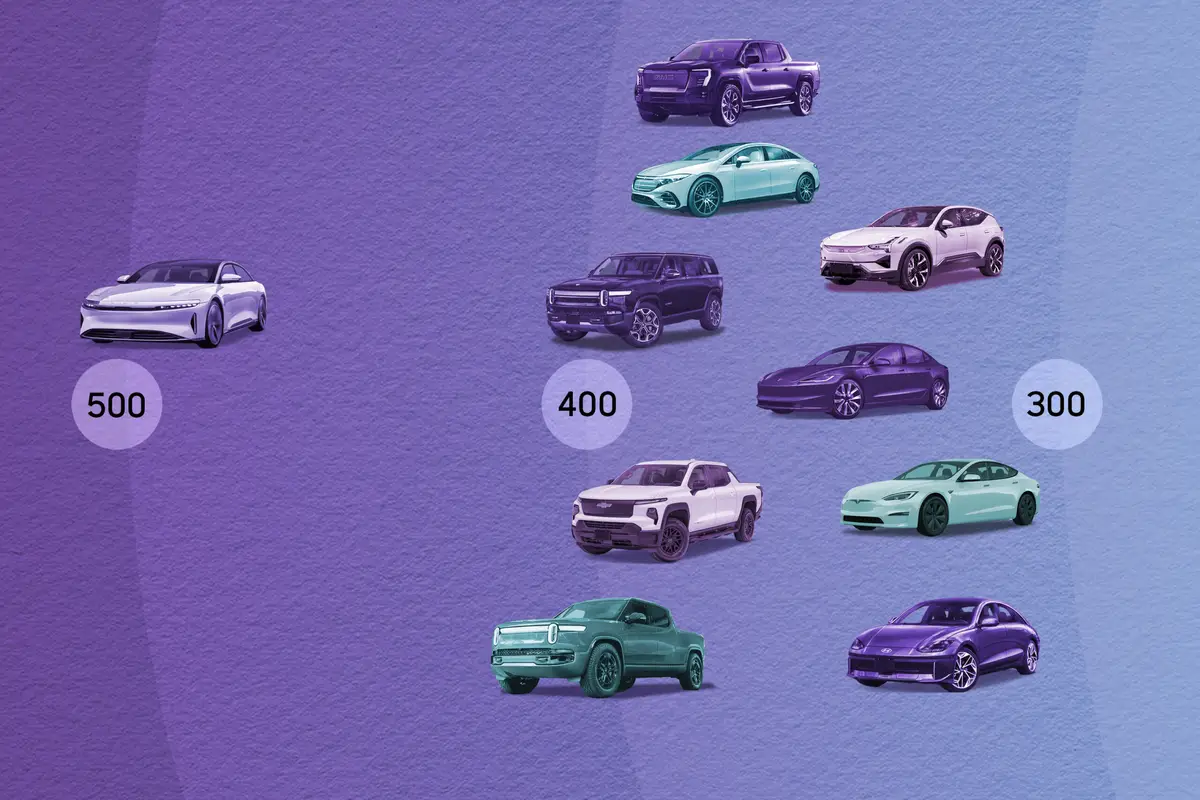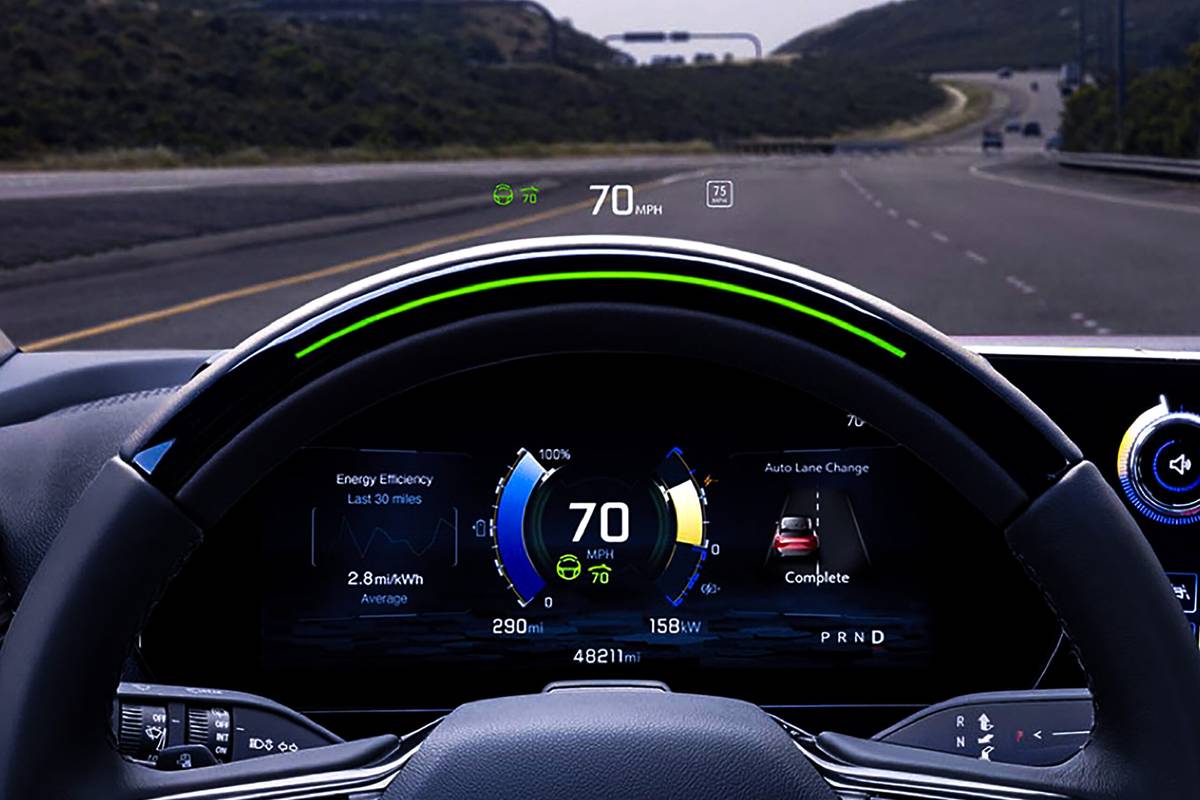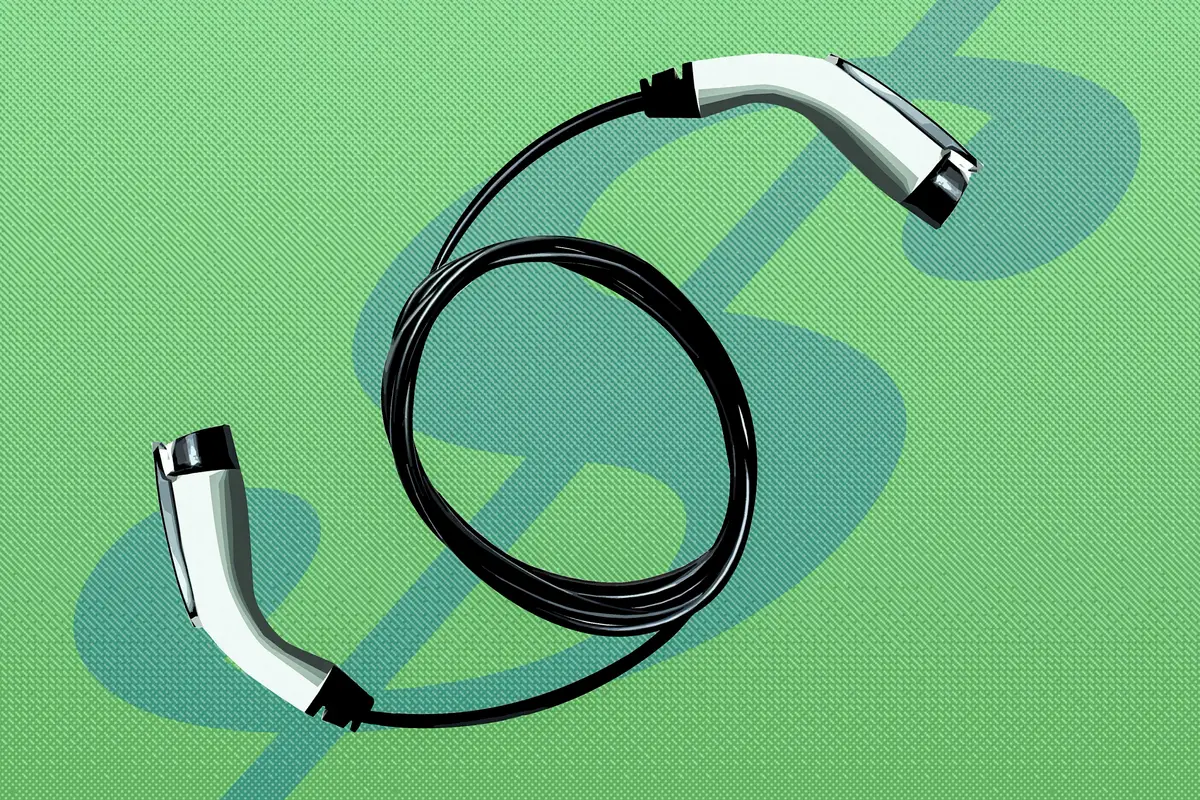Video: 2009 GMC Yukon Hybrid
By Cars.com Editors
May 13, 2009
Share
About the video
Cars.com's Kelsey Mays takes a look at the 2009 GMC Yukon Hybrid. It competes with the Chevrolet Tahoe Hybrid and Ford Expedition.
Transcript
(upbeat rock music) <v Narrator>Www.cars.com Auto Reviews. (lively electric guitar music) Hi, I'm Kelsey Mays for www.cars.com. This is the 2009 GMC Yukon Hybrid.
You know, it's a hybrid because it says so up here, over here, back there, all the way in back. And in case you're totally blind, it says "Hybrid" in gigantic letters along the doors. It might be important to do that because the fact is, this is a full-size SUV, not the sort of car you'd peg for higher mileage. In fact, I was getting ready to go to work the other day and some guy pulled up, rolled down his window and yelled, "Hey buddy, why don't you invest in some "hybrid technology that actually gets good mileage?" Before I could respond, he drove off. What a tool? Well, the Yukon Hybrid actually does get significantly better mileage than the non-hybrid Yukon. Although at face value, the numbers might not seem like they're that much better. So let's take a look at the technology and see if it actually gets you what you pay for it. At the heart of the car is GM's two mode hybrid system. Basically it's a couple electric motors and a big 332 horsepower V8. Same setup in the Chevy Tahoe Hybrid, the Cadillac Escalade Hybrid. Being a full hybrid as opposed to a mild hybrid, you can cruise along in electric only power at low speeds, or the engine can kick in and deliver a combination of engine and electric power as you're accelerating to higher speeds. There's no switches you have to pull or anything like that. Basically, it's all automatic. And at the end of the day, overall gas mileage for our four wheel drive example is about 20 miles per gallon, city/highway combined. Compare that to about 16 miles per gallon for a non-hybrid four wheel drive 5.3 liter Yukon. Four miles per gallon may not seem like very much, but really it's a 25% improvement. I'm a journalist. That's about all the math I can do. But 25% is nothing to sneeze at. If gas is two bucks a gallon and you're driving 15,000 miles per year, that's almost $400 in overall annual fuel savings. Also worth noting, Uncle Sam wants to help you out with this or Uncle Obama, whatever you want to call it. Right now, there's a $2,200 federal tax credit to buy the Yukon Hybrid. That's a credit, so it goes straight to your bottom line, not a deduction, which just lowers your taxable income. Potentially that knocks the price of a four wheel drive Yukon Hybrid down to about $51,500 and a regular Yukon four wheel drive with similar features runs about $48,500. Both of these prices exclude the destination charge. So at the end of the day, you're looking at about eight years to recoup that $3,000 difference in gas savings alone. So the Yukon Hybrid might not be a great deal right now. Of course, all of that changes if gas prices go up to anywhere near where they were in the summer of '08, because suddenly you're going to get a better resale value for this car. You're going to be saving more money in gas savings. A lot of things change if gas is three or four bucks a gallon, maybe the Yukon Hybrid is worth it. If gas is five or six bucks a gallon, well, everybody's carpooling by then. So maybe you can charge your friends a few bucks to take them for a ride. It's just a thought. <v Narrator>For more car related news go to www.cars.com or our blog www.kickingtires.net.
Featured stories

By Cars.com Editors
September 16, 2025

By Cars.com Editors
September 15, 2025

By Cars.com Editors
September 5, 2025
